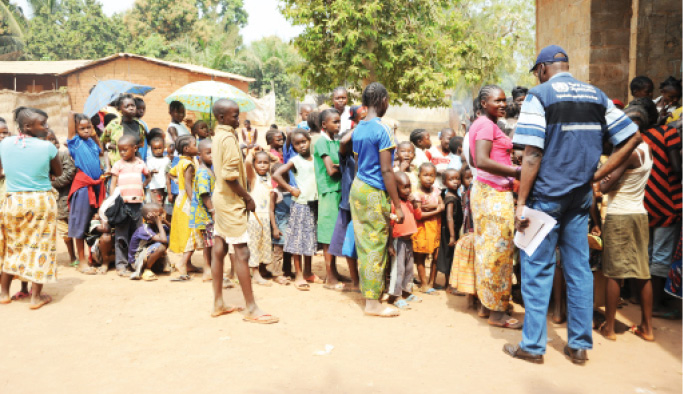UNICEF warns of ‘lost generation’ as COVID-19 hits child services
UNICEF warns of a ‘lost generation’ as COVID-19 threatens child services

Children queuing to be immunized (file photo)
The United Nations Children Funds (UNICEF) in a new report has warned of a ‘lost generation’ as COVID-19 threatens to cause irreversible harm to children education, nutrition and wellbeing.
The report, Averting a Lost COVID Generation, released ahead of the World Children Day, warned of and growing consequences for children as the COVID-19 pandemic lurches toward a second year.
The report comprehensively outlines the dire and growing consequences for children as the pandemic drags on.
It revealed that while symptoms among infected children remain mild, infections are rising and the longer-term impact on the education, nutrition and well-being of an entire generation of children and young people can be life-altering.
UNICEF Representative in Nigeria, Peter Hawkins, said since the pandemic started, there has been a false belief that children are not affected by COVID-19 adding that nothing can be further from the truth, including in Nigeria.
“While children are less likely to have severe symptoms of illness, they can be infected and the biggest impact by far is the disruptions to key services and increasing poverty rates, which are both having a huge impact on Nigerian children’s education, health, nutrition and well-being. The future of an entire generation is at risk globally and in Nigeria.
“The new UNICEF report finds that as of 3 November, in 87 countries with age-disaggregated data, children and adolescents under 20 years of age accounted for 1 in 9 of COVID-19 infections, or 11 per cent of the 25.7 million infections reported by these countries. In Nigeria, children in the same age group accounted for 1 in 10 infections, or 11.3 percent of total infections.”
The report also stated that there is a 40 percent decline in the coverage of nutrition services for women and children across 135 countries adding that in Nigeria, that decline is estimated at 35 percent.
